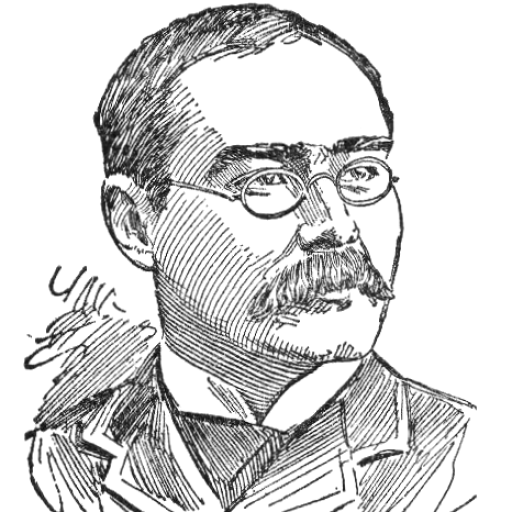You’ll be a Man, my son!
This is probably Kipling’s best-known poem. In a survey taken by The Times of London, most respondents voted it to be their all-favorite poem, with over twice as many votes as its nearest rival. Many people can attest that their lives have been changed by this poem, or know someone whose life was changed thereby.
The standards demanded by the poem may seem too tall an order for most mere mortals. Kipling himself, tongue in cheek, said that the poem “contained counsels of perfection most easy to give “. However, there is a saying that “an ideal is like a star – although it can never be reached, it is very useful for steering one’s course”. And the ideals of this poem continue to inspire people today.
‘If ‘ is attached to the story of ‘Brother Square-Toes’, one boy’s meeting with George Washington; one might suppose that this superhuman description was written to the measure of Washington. However, this poem was drawn from the character of a close friend of Kipling, the South African statesman (or adventurer and scoundrel, depending on your political views) Leander Starr Jameson. Jameson’s career took him from jail after the abortive 1895 ‘Jameson’s Raid’ (when he tried to overthrow the Boer government of Paul Kruger – see picture above) to Premiership of the Cape Colony in 1904-1908. This is recalled especially by the verse starting with “If you can make one heap of all your winnings /And risk it on one turn of pitch -and -toss …”
The main reason, I believe, that this poem is still so popular is that no matter how much counseling and moral support we may get, at difficult moments in life people are basically alone – and ‘If ‘ can inspire them to draw unexpected strength from their own resources.
Another impressive aspect is the poem’s sheer poetic skill. Some seven-eighths of the words have one syllable only, giving its lines all the convincing power of machine-gun bursts. The only long (four-syllable) word is the highly effective word “unforgiving”. The flowing rhythm and regular rhymes give additional force to the poem’s moral message.
If-
If you can keep your head when all about you Are losing theirs and blaming it on you, If you can trust yourself when all men doubt you, But make allowance for their doubting too; If you can wait and not be tired by waiting, Or being lied about, don't deal in lies, Or being hated don't give way to hating, And yet don't look too good, nor talk too wise: If you can dream - and not make dreams your master; If you can think - and not make thoughts your aim; If you can meet with Triumph and Disaster And treat those two impostors just the same; If you can bear to hear the truth you've spoken Twisted by knaves to make a trap for fools, Or watch the things you gave your life to, broken, And stoop and build 'em up with worn-out tools: If you can make one heap of all your winnings And risk it on one turn of pitch-and-toss, And lose, and start again at your beginnings And never breathe a word about your loss; If you can force your heart and nerve and sinew To serve your turn long after they are gone, And so hold on when there is nothing in you Except the Will which says to them: "Hold on!" If you can talk with crowds and keep your virtue, Or walk with Kings - nor lose the common touch, If neither foes nor loving friends can hurt you, If all men count with you, but none too much; If you can fill the unforgiving minute With sixty seconds' worth of distance run, Yours is the Earth and everything that's in it, And - which is more - you'll be a Man, my son!

